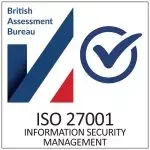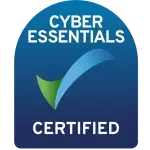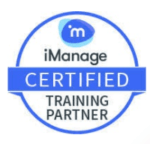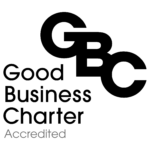

As the demand for online learning continues to grow, so does the need for effective learning management systems (LMS). With so many potential vendors, deciding which will best meet your organization’s unique needs can be overwhelming. To ensure you choose the right LMS vendor, it’s essential to ask the right questions and evaluate LMS features to ensure they align with your organization’s needs and goals.
In this article, we will explore the top questions you should ask when choosing an LMS vendor. These questions will help you make an informed decision and select an LMS that will provide the best return on investment for your organization’s online learning initiatives.
IN THIS ARTICLE...
Understanding Your Specific Learning and Training Needs
When considering an external software vendor, it’s essential to identify your specific learning and training needs. Organizations should establish clear business goals for training before selecting an LMS. This involves understanding the types of programs you need to implement, the problems you need to solve, and the goals you want to achieve. Ask yourself:
- What are the primary objectives of our training programs?
- What skills or knowledge gaps do our learners need to address?
- What are the most critical topics or subjects that require training?
- Are there any regulatory or compliance requirements that need to be met?
- What is the desired outcome of our training programs?
By answering these questions, you’ll be able to determine the specific key features and functionalities you need when choosing the best learning management system vendor. This will help you narrow down your options and choose the right learning management system for your organization.


Top Questions for Choosing the Right Learning Management System Vendor
Here at Intellek, we love to clarify things for our Client Family Members and potential Client Family Members, helping you to understand your L&D needs and make the right choices for your organization. Especially when it comes to choosing an LMS.
With over 700 Learning Management Systems (LMS) on the market, the decision on choosing the right LMS can be challenging. Crafting a Request for Proposal (RFP) can clarify your needs to potential vendors. This is one of the reasons we launched our Free LMS Evaluation Toolkit in partnership with Michelle Spencer of the Legal Learning Development Network.
Integrating learning materials and tracking learner progress are crucial for meeting your training objectives effectively. There are a few questions we get asked regularly by people choosing an LMS, mostly born out of common misconceptions, so we thought we’d answer them here.
So, what is an LMS then?
A learning platform, also known as an LMS, is a hub for all your organization’s learning activities. It’s truly a Learning Management System when it can host, manage, and track a complex series of learning elements. An LMS should allow for content management and organization across multiple formats.
It’s truly an LMS when you can use the system to track events as comprehensively as you can with eLearning training materials. It isn’t used to push you to take a particular vendor’s learning content at the expense of the content you really want.
When is an LMS, not an LMS?
So when is an LMS, not an LMS? When it’s a content portal, when it doesn’t manage events, and when you’re restricted on what content is allowed!
Unlike other types of management software, an LMS is specifically designed to focus on both content curation and user engagement, making it essential to understand these differences when choosing the right software.
Is it just a content portal?
Portals are a wonderful thing, in fact, we’re the tech partner for more than one amazing content portal out there, but they’re not an LMS.
A content portal is (usually) a cloud-hosted solution for the delivery of limited and specific information. If you’re asking us what we think of one, said information is probably around learning!
In the learning sector, a content portal might be used for delivering eLearning, videos, or written materials. It is a great way to deliver very specific courses, for example, a specific program of CLE or regionally relevant workplace behavior training.
A portal is often used as a way of delivering materials associated with instructor-led training programs, by organizations that focus their resources on training rather than software development. It contains content that fulfills your specific needs in one place, easily shareable within your firm!
Does it manage events and eLearning?
This may sound slightly bizarre coming from one of the leading suppliers of legal-specific eLearning, but there’s more to learning than just eLearning!
Here at Intellek, we hold eLearning close to our hearts. We think our instructional designers do an amazing job of creating content that will make even the most challenging software seem simple and easy to use. However, a true Learning Management System will have a balance between managing, delivering, and tracking both eLearning and events. It should also offer other features like learning paths, reports, ratings, reviews, and much more. This is an important factor to consider when choosing an LMS vendor.
These events might be instructor-led training sessions on applications, they might be CLE lectures or they might be more informal sessions for team members to meet and exchange best practices. However, if your choice of LMS only manages the learning delivered in your browser, you’re back in the portal territory!
Are we restricted on what content is allowed?
We’re frequently asked: “So if we go with your LMS, what if we want to add another vendor’s learning?” and our answer is always… “we’d love you to go with our learning catalog but if you select our LMS you’re quite welcome to put whatever learning you like in it”.
The reason for this is that we don’t think we can fairly supply you a platform to manage, deliver, and track all your firm’s learning (online and offline) and then insist you are limited to the learning we supply!
We believe that no single learning provider will be able to satisfy all your learning needs. We’re happy when we can but we won’t restrict you where we can’t. You should have the option to get material from as many vendors as you like.
This is why full LMSs often reference SCORM, AICC, or other communication standards for learning. They’re not there to promote you taking proprietary content – they’ll host it all!
If someone claims that you only need their content when choosing an LMS and nothing else at all, be careful. Because even the biggest players in the industry, usually understand that it’s very easy to slip into the jack-of-all-trades and master-of-none scenario here.
Are There Technical and Compatibility Requirements?
When evaluating a Learning Management System vendor, it’s crucial to consider the technical and compatibility requirements of the platform. This includes:
- Integration with existing systems: Will the LMS integrate with your existing HR systems, CRM, or other software applications?
- Compatibility with devices and browsers: Is the LMS compatible with various devices, browsers, and operating systems?
- Security and data protection: Does the LMS provide robust security measures to protect learner data and ensure compliance with regulatory requirements?
- Scalability: Can the LMS scale to meet the growing needs of your organization? Flexibility and scalability of the chosen LMS are vital for future growth.
- Customization: Can the LMS be customized to meet your specific branding and design requirements?
By considering these technical and compatibility requirements, you’ll be able to ensure that the vendor you choose can meet your organization’s unique needs and provide a seamless learning experience for your learners.
What Kind of Customer Support Is Available?
When selecting an LMS vendor, it’s essential to consider the level of customer support and training provided. This includes:
- Phone and email support: Is phone and email support available to address technical issues and questions?
- Online resources and documentation: Are online resources and documentation available to help learners and administrators troubleshoot issues?
- Community forums and discussion boards: Are community forums and discussion boards available for learners and administrators to connect and share knowledge?
- Training and onboarding: Does the vendor provide comprehensive training and onboarding for administrators and learners?
- Ongoing support: Does the vendor provide ongoing support and maintenance to ensure the platform remains up-to-date and secure?
A responsive customer support team can significantly impact user satisfaction. By considering the level of customer support and training provided, you’ll be able to ensure that you and your learners receive the support you need to succeed with the LMS.
Top 6 Questions to ask LMS vendors
When considering which company is best suited to your needs and evaluating different LMS solutions to find the best fit for your organization, it is worth asking the following questions to ensure you get the best product:
- What features does your LMS offer and how do they align with our organization’s goals and requirements? Understanding the demographics of learners affects the selection of LMS features. This question helps to ensure that the LMS vendor’s offerings align with your organization’s specific requirements and goals, and helps to identify any potential gaps in functionality.
- How will you support our organization in implementing and customizing the LMS? This will help to determine whether the vendor offers support services to help your organization successfully implement and customize the LMS, and to what extent.
- What security measures does your LMS provide to protect our data and ensure compliance with relevant regulations? This question will ensure that the LMS vendor’s security measures align with your organization’s security policies/regulations and that they meet any necessary compliance requirements.
- What training and resources do you offer to help our employees and learners use the LMS effectively? This will help you determine what kind of resources the vendor offers to help your employees and learners use the LMS effectively and ensure they are equipped to use it to its fullest potential. Technical proficiency of users also influences the design and complexity of training content.
- Can you provide references from other organizations that have implemented your LMS? This question will provide feedback and insights from other organizations that have implemented the vendor’s LMS, which can be valuable in helping your organization make an informed decision about which LMS to choose.
- How often does the LMS get software updates released? Inquiring about a vendor’s plans for future updates ensures your cloud-based LMS remains relevant over time. Regular updates for LMS software are essential to maintain functionality and user satisfaction.
Frequently Asked Questions about LMS Vendors
Choosing the right learning management system (LMS) vendor is crucial yet challenging. With so many options to evaluate, organizations often have additional questions when researching LMS providers. Regular updates for LMS software are essential to maintain functionality and keep up with the latest learning technologies. Below we have answered some of the most frequently asked questions around selecting and working with vendors.
These cover topics like narrowing down your options, evaluating vendors, and comparing experience levels and costs. Having insight into considerations like these can help simplify your decision-making process. Our goal is to provide clarity and perspective so you can find the ideal LMS partner for your organization’s specific needs and priorities.
How do I shortlist LMS vendors that fit my needs?
Start by developing LMS requirements aligned with your key learning programs, audiences, and business goals. Then research LMS vendors that serve organizations like yours and create a capabilities matrix to compare their features, integration capabilities, deployment options, etc. Shortlist the 3-5 LMS platforms that most closely fit your requirements. Also, talk to industry peers to determine if others have had success with those platforms for use cases similar to yours. Then move those top contenders into product demos and proof-of-concept pilots.
What questions should I ask vendor references?
When choosing an LMS and speaking to vendor’s customer references, make sure to ask details like what key requirements led them to choose that vendor, what features they utilize most/least from the platform, any challenges faced during implementation or ongoing use, how responsive and helpful the vendor’s support services have been, whether their LMS costs have aligned to initial expectations, what metrics they use to track LMS success, and whether they’d recommend the vendor/platform to others.
Should I pay more for the vendor with more experience?
Not always. Consider your key requirements and whether newer or more specialized vendors can deliver well for your current and future needs. More established vendors usually have longer track records and existing customers you can leverage for references. However, they sometimes come with premium price points and can lack the flexibility or innovation of newer entrants. Be wary if a startup LMS vendor has little referenceable experience though.
As always, proof points matter most when evaluating options. A well-designed vendor website indicates user focus and quality. But cost and vendor experience need to be weighed against your specific organizational needs and resources first and foremost. When adopting a new learning management system, it is crucial to evaluate the LMS’s features, costs, and operational needs to ensure a well-informed decision.
Don’t Forget to Factor in the Pricing Model
Choosing the right LMS requires careful budget planning to ensure your investment aligns with your organization’s financial capabilities. It’s important to evaluate the total cost of an LMS, considering not just the base price but also customization, integration, support, and upgrades. Opting for an LMS platform with a transparent pricing model helps avoid unexpected costs.
There are various pricing models for LMS, including per-user pricing, subscription-based, tiered pricing, and pay-per-course options. A freemium model generally offers basic LMS functionality for free, with optional paid features for additional functionality. Some LMS platforms charge a one-time license fee for perpetual use, followed by annual support fees. Others model their pricing on a per-user basis with breakpoints for bulk purchases and support included.
How does Intellek fit with Choosing an LMS Vendor?
If you want to check out a leading LMS built for scalability, with unlimited responsive support, agile in-house developers, and decades of experience, please take a look at Intellek LMS. If you want to find some great application-focused eLearning and assessments, see our Off-the-Shelf eLearning.
At the bottom of each of our website pages, there are contact details. If you happen to be interested in both solutions please use either path to contact us but don’t feel like you have to – make the right decision for you and your organization when choosing the perfect learning management system!
But hey, if you’re exploring LMS vendors and in the market for a new LMS, what’s the harm in having a Free LMS Demo?
Intellek (formerly TutorPro) is a founding member of the learning technology industry. With a presence in the USA, UK, Canada, and the EU – for over 30 years we have pioneered the development of cutting-edge eLearning software and online training solutions, with a large and diverse portfolio of international clientele.
Disclaimer: We use all the tools available including generative AI to create relevant and engaging content.





